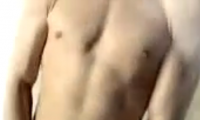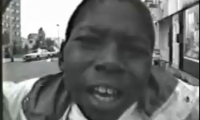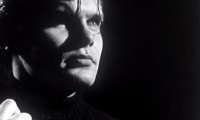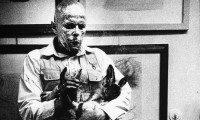Carl Jung at his home in Zurich (1957)
I’ve always been quite preoccupied with death, and I like what Jung says – or at least it helps me to justify my obsessions: that if you refuse to contemplate death you’re evading life itself, the conditions of being in the world.
I started by trying to find a decent clip about “The Myth of Sisyphus,” which consoled me through a lot of adolescent morbid angst (I mean the morbid angst of my adolescent years, though perhaps my morbid angst remains somewhat adolescent).
But, as often happens with the Internet, I couldn’t find precisely what I wanted. I was looking for something about Camus’s suggestion that we must imagine that Sisyphus is happy. That his existence, repetitive and perhaps a little dreary though it is, has to be imagined as a victory, not a defeat. Has to be, or should be, if we want to be well, if we want to find a way of living in the world.
After not finding “The Myth of Sisyphus,” or the part I wanted, I searched for Jung, because I remembered he wrote about the therapeutic effects of faith, as a kind of psychic survival mechanism.
William James said something similar, that he was interested not in discussing the truth of a particular religious belief but in assessing how it affected a person’s state of mind.
In this clip, Jung argues that believing in an afterlife has the undeniably useful effect of helping people to enjoy themselves in the here and now. Otherwise, Jung proposes, they get so worried about death that they worry themselves to death, which seems a sad irony.
Jung also talks about his sense that the psyche, as he calls it, is not quite bound by the rules of time and space, ‘there are more things between heaven and hell than are dreamt of in your philosophy’ und so weiter… I understand him to mean that you may as well believe whatever you like, or whatever helps you through the pre-dawn sweats, because no one actually knows what the hell is going on.
After that I tried to find a good “Hamlet” clip, and mostly I got versions of ‘to be or not to be that is the…’ etc. Sadly for Hamlet, his thoughts of the afterlife are not very therapeutic at all.
Perhaps he’s getting too tangled up in specifics, trying to imagine something plainly unimaginable to the living psyche, consciousness or soul or whatever we’re calling it.
Kenneth Branagh, “Hamlet” (1996)
Joseph Campbell said something about how life is a thing which shouldn’t be, but if it is, as it seems to be, then you have to accept it as it is. I searched for that but I couldn’t find it. I also couldn’t find a clip of that moment in Hamlet where he says, “There is nothing either good or bad, but thinking makes it so.” But I did find Jung again.
Carl Jung (1957)
– Joanna Kavenna






